Authorship in Creative Arts Education
Authorship in Creative Arts Education
Dina Belluigi considered the problem of authorship in relation to the conditions for creativity and the development of artists, through formal higher education. Methods for generating insights, reflection and discussion included visual narratives (constructed individually by artist-students, followed by small group discussions with their peers) and dialogues with artist-educator, in addition to observations of formative and summative assessment events (‘critiques’) within the studio and talk aloud protocols of moderators and external examiners. The institutions were located in England and South Africa, to consider the ways in which intentionality was handled within the interpretations of assessors for exit level qualification of the Bachelor of Fine Art.
Findings from the study were disseminated via these publications:
Belluigi, D. Z. 2021. The Problem of Authorship: A Thorn in the Side of Assessment. Chapter in Ludec, D. and Beland, S. (eds). Perspectives on Learning Assessment in the Arts in Higher Education. Routledge.
Belluigi, D. Z. 2020. “It’s Just Such a Strange Tension”: Discourses of Authenticity in the Creative Arts in Higher Education. International Journal of Education Through Art, 21(5), 1. http://www.ijea.org/v21n5/v21n5.pdf
Belluigi, D. Z. 2018. The importance of critical judgment in uncertain disciplines: A comparative case study of undergraduate fine art visual practice. Arts & Humanities in Higher Education 17 (3). p.305-322. doi.org/10.1177/1474022217712641
Belluigi, D. Z. 2017. A Framework to Map Approaches to Interpretation. Journal of Aesthetic Education, 51(3), 91–110. http://www.jstor.org/stable/10.5406/jaesteduc.51.3.0091 or https://muse.jhu.edu/article/668341
Belluigi, D. Z. 2017. 'The significance of conflicting discourses in a professional degree: Assessment in undergraduate fine art practice', Discourse: Studies in the Cultural Politics of Education, vol 38, no. 2, pp. 209-221. http://dx.doi.org/10.1080/01596306.2015.1075961
Belluigi, D. Z. 2016. Influences on the struggle over content: considering two fine art studio practice curricula in developing/ed contexts. Teaching in Higher Education, vol 21, no. 6, pp. 700-715. https://doi.org/10.1080/13562517.2016.1183617
Methodological reflections can be found in this open access publication:
Belluigi, D. Z. 2018. ‘Practice-based reflections of enabling agency through arts-based methodological ir/responsibility’ in Du, X. and Chemi, T. [Eds]. Arts-based methods in education around the world. River Publishers. https://www.riverpublishers.com/pdf/ebook/chapter/RP_9788793609372C7.pdf 10.13052/rp-9788793609372
Belluigi, D. Z. 2019. Visual Narratives as Reflective Processes for Learning Engagement. In M. A. Peters, R. Heraud (eds.), Encyclopedia of Educational Innovation, online first https://doi.org/10.1007/978-981-13-2262-4_26-1
The visual narrative method was developed, and evaluated, in collaboration with artist and educator Brent Arthur Meistre (Analogue Eye: Video Art Africa), who had developed the archive in collaboration with psychologist Jan Knoetze (Rhodes University). Related material includes:
Meistre, B. (1998, ongoing). Malaise. Growing Photographic Archive of 10 x 15 cm Photographic Prints. Collection of the artist.
Meistre, B., Belluigi, D. Z. (2010). “After image: using metaphoric storytelling,” in Teaching Creativity – Creativity in Teaching, eds C. Nygaard, N. Courtney, and C. Holtham (Oxfordshire: Libri Press).
Meistre, B., and Knoetze, J. (2005). Malaise: a projective (non-test). Presented at the International Society for Theoretical Psychology Conference, UCT Business School, Cape Town.
